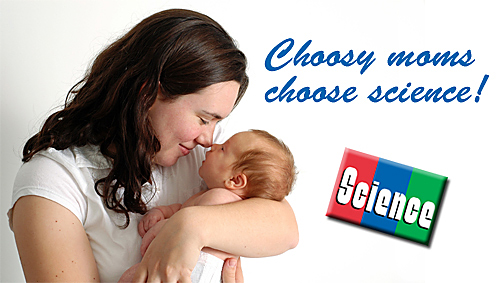

They are better than moms at teaching children how to deal with novelty and frustration, perhaps because they are more likely than mothers to encourage children to work out problems and address challenges themselves-from putting on their shoes to operating a new toy. What do most real-world dads do? When the kids get old enough, they teach them how to build and fix things and how to play sports. They die much earlier, commit more crimes, and give birth to more babies out of wedlock. Children who grow up in fatherless families are poorer, less healthy, less educated. The problem with honoring fathers who do what mothers usually do-what used to be called "mothering"-is this: It suggests that fathers who do what most fathers do aren't contributing to their children's well-being. Even in families where fathers have taken a four-month-long paid parental leave to tend to their newborns, the fathers report that the babies prefer to be comforted by their mothers. And the babies themselves make it clear that they prefer their mothers. Mothers are loaded with estrogen and oxytocin, which draw them to young children and help induce them to tend to infants. This is not just an accidental social arrangement, to be overcome once the media have sufficiently raised our consciousness about the joys of stay-at-home fatherhood. He mentioned, for example, the classic peanut butter ad, "Choosy Moms Choose Jif." McGee wanted advertisers to know that he is "one of many caring dads" who are choosy, too.īrace yourselves for an onslaught of such features this week, even though, in the real world, there are still 58 moms staying home with minor children for every dad who does so. On May 8, the Washington Post's Sunday Outlook section featured William McGee, a single dad who "couldn't help feeling excluded" by all the ads for products that "moms and kids" would both love. This year the homemaking fathers even got to horn in on Mother's Day. "Why is it only sexist when women are excluded?" "I'm the one who does the shopping, and I'm the one who does the cooking," he reasoned. He was angry at a parents' magazine whose essay contest was open only to mothers.

Zorek, whose wife brought home a good salary as a corporate lawyer, felt he had become "remarkably good" at shopping, at cooking, and at entertaining his energetic toddler. The year before last, for example, Lisa Belkin of the New York Times described the life of one Michael Zorek, whose only job was taking care of his 14-month-old son Jeremy. She is a special person and I am so grateful that our dogs got to spend so much time being doted on by her.FATHER'S DAY NO LONGER ARRIVES without the national media highlighting Mr. It was so clear that she loved and understood our dogs and also so clear that they loved her and looked forward to seeing her. I cried when I said goodbye to Hunter because she had started to feel like a regular in our house and an extended part of our family. While everyone on your team is wonderful and we have appreciated all of them,I would be remiss if I didn't take a moment to say something about Hunter. As the kids got older, they figured out who the walkers were and would either happily chat at them and tell them everything that was happening (Emmett) or shyly hide and watch them from around the corner before loudly yelling goodbye (Caroline). Pepper would patiently wag freeze and wait for her turn. Curtis would excitedly "talk" to whoever would come to walk him and then immediately trot away because he enjoyed being chased down to put his leash on. It took special people to see past this big dog's frantic behavior and know that it was anxiety, not aggression, and be patient and work to understand him. He was enormous, loud, drooly, anxious, and hated to be left.


While Pepper was a very laid back dog, those of you who worked with Curtis know that he was *special*. Whether it was their walks during the week or overnights or holidays or vacations, I can't let tell you how nice it was to know that they would be cared for by people who understood them. Your team became a regular part of their lives and our household. Even after we had (human) children, the dogs were still special and spoiled and central to our lives. As I'm sure you know, Curtis and Pepper were our children before we had children and we built a life and world around them. I honestly can't remember how long ago you guys first started caring for our dogs (8 years maybe?), but it feels like forever. I just wanted to send a heartfelt Thank You to you and your team.


 0 kommentar(er)
0 kommentar(er)
